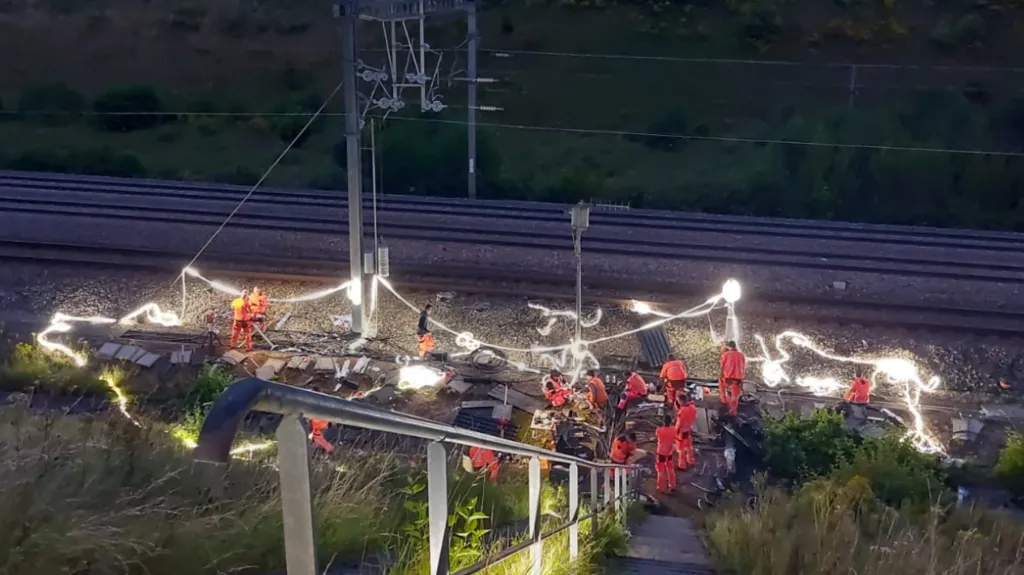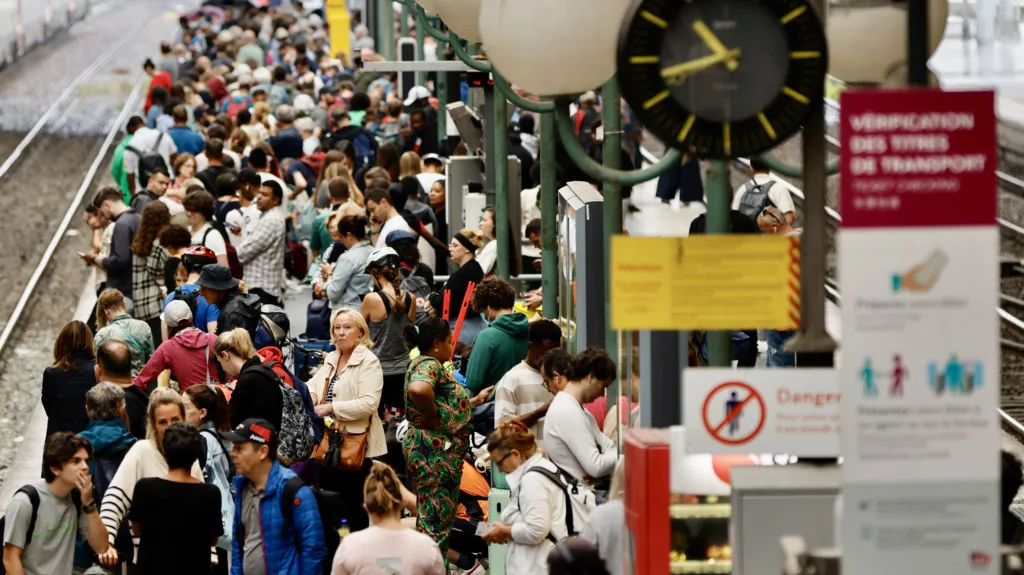Table of Contents
ToggleIntroduction
On a critical weekend for France, as the nation prepared to host the Olympic Games, a series of calculated arson attacks severely disrupted the country’s high-speed rail network. The attacks, which have led to extensive cancellations and delays across the rail system, have been described as “coordinated” and “strategic,” affecting both domestic and international services. This article provides an in-depth examination of the incidents, their repercussions, and the ongoing efforts to restore normalcy.
The Incident: Arson Attacks on the French Rail Network
Overview of the Attacks
On a pivotal day for France’s transportation network, three out of ten high-speed trains were cancelled due to a series of deliberate arson attacks targeting the rail infrastructure. The incidents, which took place on routes crucial for travel within and outside Paris, have been linked to a broader scheme of sabotage that aimed to create maximum disruption.
French Prime Minister Gabriel Attal confirmed that security forces are actively pursuing those responsible for these attacks, which have severely impacted the transportation network at a time of heightened national significance.
Details of the Sabotage
The attacks focused on cabling boxes at strategic junctions along the North, Brittany, and South-West rail lines. These areas are vital for the safe operation of the rail system, with the specialized fibre optic cables targeted being essential for maintaining the functionality and security of the network. The saboteurs’ actions involved cutting and setting fire to these cables, resulting in significant damage and operational paralysis.
According to government officials, the sabotage was well-planned and executed by a coordinated group. Rail workers were able to thwart an additional attempt to destroy safety equipment on a fourth line, preventing further disruption.
Impact on Rail Services
Domestic Train Services
The effects of the attacks were felt nationwide. The French national rail company, SNCF, reported that about 250,000 passengers were impacted on the day of the attacks. Services on major lines, particularly those running in and out of Paris, experienced delays of up to two hours. The disruption was exacerbated by the cancellation of three out of ten high-speed trains, leaving many travelers stranded or facing significant delays.

International Services
Eurostar, the high-speed train service connecting London and Paris, was also affected. Approximately a quarter of Eurostar services were cancelled over the weekend, disrupting travel plans for numerous international passengers. This included high-profile travelers such as Prime Minister Sir Keir Starmer, who had intended to use the train service to attend the opening ceremony of the Olympic Games but was forced to fly instead.
Passenger Advisories
In response to the widespread disruption, travelers have been advised to postpone their journeys if possible. The rail network is expected to return to normal by Monday morning, but until then, travelers should anticipate continued delays and cancellations.
Government and Rail Network Response
Efforts to Repair and Restore
In the wake of the attacks, SNCF staff have been working around the clock to repair the damaged infrastructure. Despite the challenging conditions, including adverse weather, the repair teams have been laboring tirelessly to restore the network’s functionality. Their efforts are critical to minimizing the long-term impact of the sabotage and ensuring that rail services can resume as quickly as possible.
Security Measures and Investigation
The French government has launched a comprehensive investigation into the attacks. Authorities are focusing on identifying and apprehending the perpetrators, with initial indications suggesting that the operation was organized by a single, well-coordinated group. The investigation is ongoing, with security forces employing various measures to prevent further incidents and ensure the safety of the rail network.
The Broader Implications
Impact on the Olympic Games
The timing of the attacks, coinciding with the opening of the Olympic Games in Paris, has amplified their impact. The disruption of transportation services at such a crucial time not only affects daily commuters but also poses significant challenges for international visitors and athletes arriving for the Games. The need for efficient transportation is paramount for the smooth operation of the event, and the sabotage has highlighted vulnerabilities in the infrastructure that need to be addressed.
Public Reaction and Concerns
The attacks have elicited widespread concern and frustration among the public. Travelers and residents have expressed their dissatisfaction with the disruptions and their impact on their plans. The incident has also sparked discussions about the security measures in place to protect critical infrastructure and the potential vulnerabilities that could be exploited by malicious actors.
Long-Term Effects
The long-term effects of the sabotage will depend on the speed and effectiveness of the repair efforts and the measures taken to enhance security. The incident has underscored the importance of maintaining robust security protocols for transportation networks and other critical infrastructure. It also serves as a reminder of the potential for coordinated attacks to create widespread disruption and the need for vigilance and preparedness.
Conclusion
The recent arson attacks on France’s high-speed rail network have had a profound impact on transportation services, affecting both domestic and international travel. The coordinated sabotage, which targeted essential infrastructure, has highlighted vulnerabilities in the rail system and posed significant challenges for the country during a pivotal time. As repair efforts continue and the investigation progresses, the resilience of the French transportation network will be tested. The incident serves as a stark reminder of the importance of maintaining security and preparedness in the face of potential threats.


